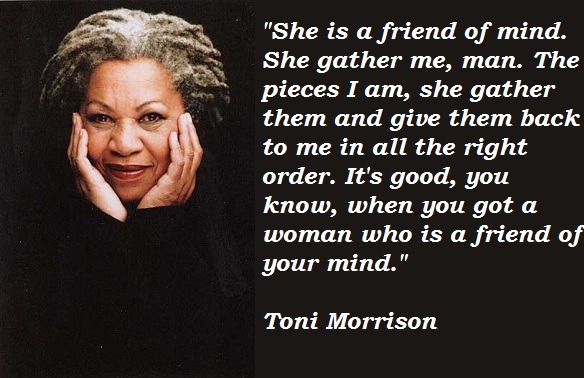
image via luminarium

image via blackmanonthemoon
In the foreword of Sula, Toni Morrison writes:
"How does a reader of any race situate herself or himself in order to approach the world of a black writer? Won't there always be apprehension about what may be revealed, exposed about the reader?"
Reading this I heard Toni Morrison return the gaze @ white supremacy, particularly within Amerikkkan literature. She discusses how her work and that of other Black writers are asked to represent "whether 'Black people are--or are not--like this'." Toni Morrison then says she "again, rooted the narrative in a landscape already tainted by the fact that it existed." You already know. And further she's like, aren't y'all asses afraid that your response to reading this might expose the racism and patriarchal whiteness you keep so close kempt? I mean ask a question, really.
I should mention that these are all quotes from the foreword. Forewords, at least in The Bluest Eye and Sula, are crucial.
This is the last paragraph from the foreword of Sula:
"Outlaw women are fascinating--not always for their behavior, but because historically women are seen as naturally disruptive and their status is an illegal one from birth if it is not under the rule of men. In much literature a woman's escape from male rule led to regret, misery, if not complete disaster. In Sula I wanted to explore the consequences of what that escape might be, on not only a conventional black society, but on female friendship. In 1969, in Queens, snatching liberty seemed compelling. Some of us thrived; some of us died. All of us had a taste."
And of course, my bisexual hypothesis for the book is that Sula and Nel become lovers.
No comments:
Post a Comment